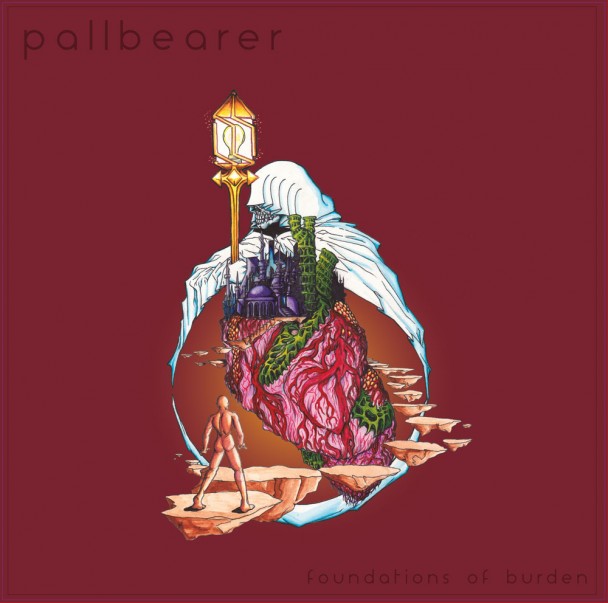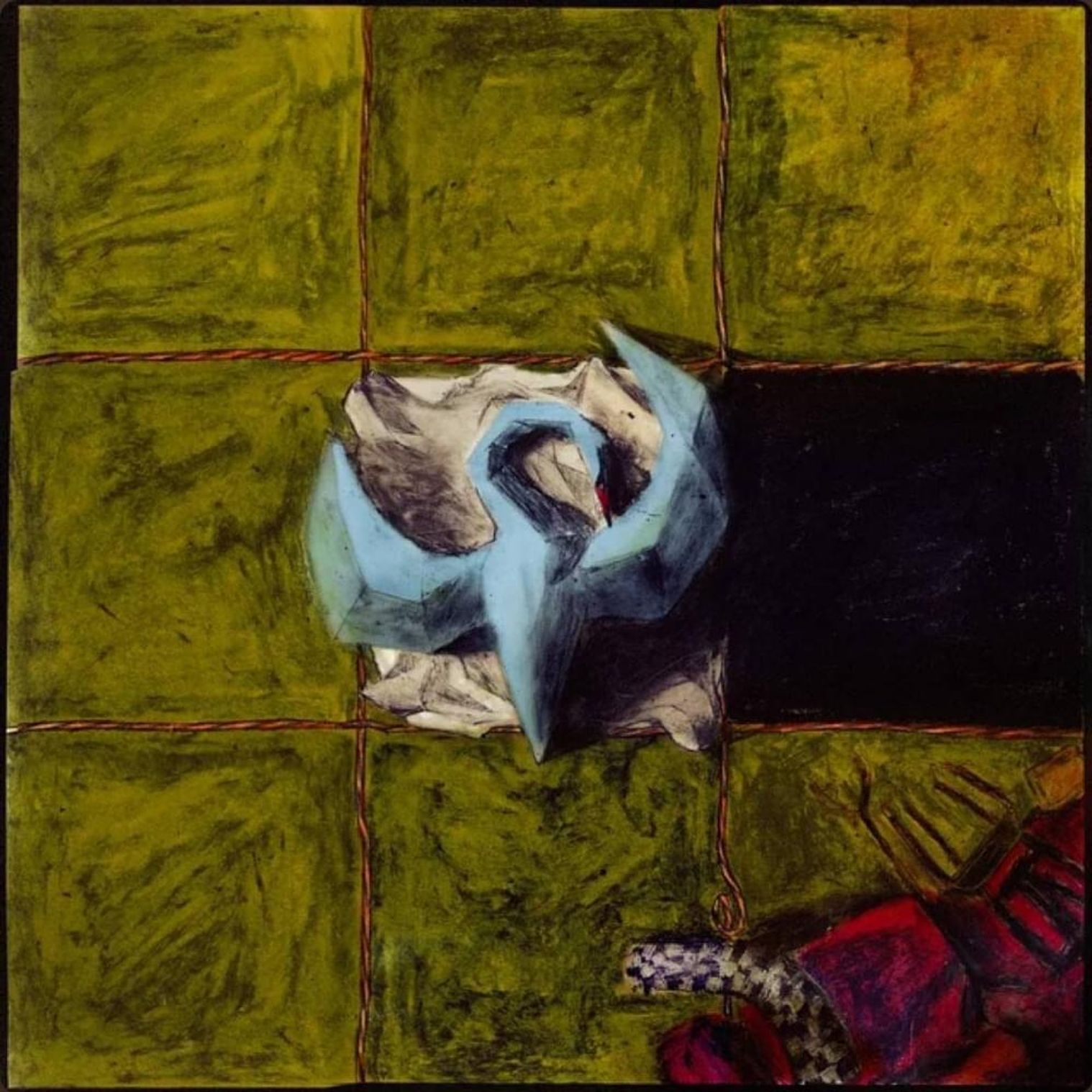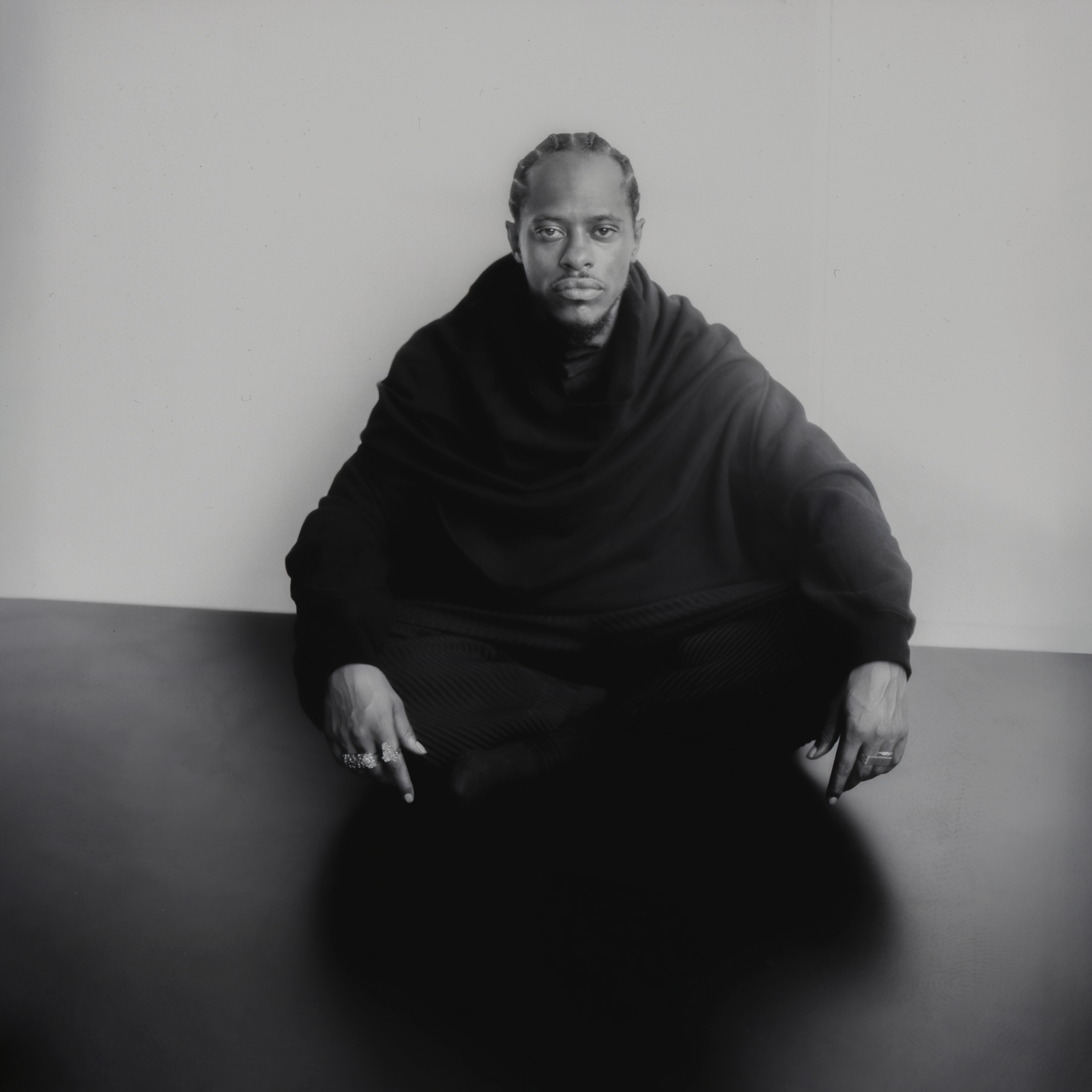Pallbearer don't sound like Black Sabbath. Or they do, sort of, but only to the extent that early Low sounds like a Phil Spector girl group, or that second-album Bon Iver sounds like Bruce Hornsby. The influence is there, clearly audible, underpinning everything Pallbearer do. But it's all filtered through waves upon waves of oceanic gloop, melting and warping and refracting that original sound until it's something entirely different. It's the Sabbath sound when heard through a couple of different Babelfish filters. If, for instance, Iron Maiden were a sped-up drama-class version of Black Sabbath, then Pallbearer sound something like a DJ Screw remix of Iron Maiden, or like Iron Maiden after they've been petrified in black tar for a few thousand years. Pallbearer trade in triumphant leads and instinctive juddering caveman riffage and higher-than-the-sun vocal wails, just like so many metal greats before them. But they don't use those sonic ingredients to batter or scream. Instead, they fold them on top of each other, layering them up like blankets on a cold night, and slowing them down into psychedelic sludge.
There is, of course, an entire wing in the underground-metal castle dedicated to slowed-down variants on that elemental Sabbath crunch, and Pallbearer very much belong within it. But other doom metal bands seem to take their subgenre's name seriously. Their music is all foreboding, ominous atmosphere -- deep and rich and dark. Pallbearer's first album was like that, too. Sorrow And Extinction, from 2012, won a ton of accolades from the metal side of the indie press, but I couldn't hear it as much more than an impressive-enough take on a well-established sound. The new Foundations Of Burden is something else. For one thing, there's nothing especially dark about it. It's warm, humid music, music for staring at lava lamps and sinking into a happy haze, whether chemically aided or not. (My new thing is to throw on Foundations Of Burden and eat a really, really big lunch.) The sound is a lot fuller and more comforting than that of the first album, and while all the guitars in the mix are working together, they're usually doing vastly different things, stomping or jangling or humming spectrally or picking out delicate little folk melodies. It all comes out sounding like doom metal's hot, gooey center, rather than its forbidding outer shell.
Looking at the Foundations Of Burden tracklist, the first thing that jumps out at you is that the songs are long -- five of the six hovering around the 10-minute mark, most of them over. But if that's a stumbling block for you, it shouldn't be. Each of the songs sounds like three or four songs in itself, moving from one section to another in woozily counterintuitive ways. Slow as they are, these songs would be a bitch to play in Guitar Hero -- not because they're long, but because they lurch between segments and riffs and time signatures so haphazardly that you'd never be able to fall into that bliss-out trance. (Maybe that's why Pallbearer are so notoriously boring live; they have to put all their energy into remembering what to do next with their instruments.) But even with all those changes, the band never ruptures the mood that they build. Instead, this is a classic example of the album where you stop paying attention to where one song ends and another begins. As with something like DJ Shadow's ...Endtroducing, everything blurs into one seamless zone-out whole. And in fact, the only song that really jumps out as its own thing is "Ashes," the sole short song, which sounds something like Beach House backing up a heavily sedated late-'70s Ozzy Osborne as he's singing a deeply sad English folk song. There's not a single sustained guitar-crunch on "Ashes," but it's very much in keeping with the feel of the album.
But Foundations Of Burden isn't all atmosphere and artfully bongwater-drowned metal reference points. It's an album full of grand, powerful melodies, arranged in interesting ways and built on top of each other like ancient ruins. Frontman Brett Campbell doesn't grunt or roar; he actually sings, in a full-throated and angelic sort of way. Those clean vocals, combined with the heavy reverb on every element of the mix, goes a long way toward making Foundations Of Burden the rare metal album that won't make you want to die if you hear it when you're in the wrong mood. Foundations Of Burden is still very much a metal album, an album mindful of its place in the entire musical ecosystem and not interested in losing a core fanbase by going out chasing waterfalls. But it's metal of a type that we don't often hear: Luxuriant metal, opium-den metal, metal for putting every pillow in your house on your living room floor and then spending an entire afternoon sprawling across them all. Michael will probably want to punch me for using this term, but it's soft metal -- beautifully arranged, masterfully realized soft metal. It's metal for floating away.
Foundations Of Burden is out today on Profound Lore.
Other notable albums this week:
• JJ's sweeping, excellent big-pop move V.
• The Justin Vernon-led space-rap supergroup Jason Feathers' debut De Oro.
• Take Over And Destroy's death 'n' roll shit-ripper Vacant Face.
• Castanets' sad psychedelic folker Decimation Blues.
• Celebration's operatic, art-damaged Albumin.
• Kimbra's big-money weird-pop album The Golden Echo.
• Empire! Empire (I Was A Lonely Estate)'s emo-revival lament You Will Eventually Be Forgotten.
• Ex-Broken Social Scene duo AroarA's unpredictable, poetry-inspired debut In The Pines.
• Bishop Allen's dependably tuneful indie-popper Lights Out.
• Baked's raw DIY debut Debt.
• Literature's cheeky, jangling, anglophilic Chorus.
• Connections' earnest, unpretentious punker Into Sixes.
• Dan Svizeny's personal, home-recorded Every Weekend.
• Wiz Khalifa's directionless commercial rap record Blacc Hollywood.
• Ryan Adams' old-school hardcore 1984 EP.
• Flaming Lips side project Electric Würms' Musik, Die Schwer Zu Twerk EP.






